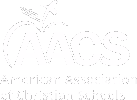With a new school year upon us, I believe educators and parents need to freshen up (or establish) their biblical philosophy for navigating learning struggles in the classroom and with their children. The statistics become our wakeup call: one in five children have some form of learning or attention struggle. That means that most likely one in five families and up to 20% of students in a classroom will exhibit some symptom consistent with learning and attention issues. How should a Christian respond biblically when working with and helping a student/child who has a learning struggle? How should a student/child respond properly when faced with the reality he has a learning or attention issue? Because learning disabilities are so prevalent in our schools and homes, we educators and parents need to know how to think biblically about students who struggle with learning. If we are thinking right about the situation, we can better help the student think right about his learning reality.
Foundational Biblical Truths To Believe
- God doesn’t make mistakes in creating us. Learning disabilities are not mistakes or surprises to God. He designed and fashioned every part of us. Psalm 139
- God created every person with value because every person is created in God’s image. Genesis 1:26-27; 9:6
- God has a purpose for you and your child even in the hard of a learning disability. God has a purpose for every teacher who works with a student with a learning disability. Romans 8:28-29; Jeremiah 29:11
- God is good always and only. He is not “bad” for giving you or your child a learning issue. Nahum 1:7
- God does not give us trials and hardships to punish us. Trials and discipline are meant to draw us to God because God loves us. Hebrews 12 and 1 Peter
- God allows trials and hardships in our life to remind us of His sustaining grace and power in our weaknesses. This is especially helpful when we understand there is no “cure” for learning disabilities, although there are plenty of strategies to help a student thrive. 2 Corinthians 12:7-10
- God expects us to navigate life dependent on Him as we steward God’s creation of us and our students/children. Genesis 1:28-31; 1 Corinthians 9:24-27; 10:31
These are truths we must believe and apply to each child in our classroom and home. God doesn’t make mistakes in how He creates or places children in our life. His placing a child with a learning disability in our sphere of influence requires us to believe God to be true in the above seven biblical truths.
Stewarding Tips for Educators and Parents
This isn’t the platform to fully expound on each of these tips, but I trust they will be steppingstones or springboards (whichever metaphor you connect with the most) to applying biblical truth to everyday decisions.
- In working with children of all ages and personalities and academic abilities, fairness does not mean “equal.” What works for one child may not work for the other. Don’t fall into the trap of trying to make the classroom or home a place of equalness. Fairness is best defined as “doing what is best for each child in each unique situation.” Teach this definition to children, and they will better understand why some situations/students are dealt with differently from others.
- More is not always more in education. Sometimes less is more. The bottom line is that students with learning disabilities aren’t stupid or ignorant students. They simply learn differently and often at a different pace. So, educators and parents shouldn’t over-assign classwork or homework to struggling learners.
- There is no strategic or helpful benefit to finding someone to blame for learning disabilities. Going down the blame-game trail does not remove the disability. Parents should not feel guilty for having a child with learning struggles, nor should educators make parents feel responsible. At the same time, teachers should not feel guilty for a student who struggles to learn; it is not a reflection of the teacher’s ability to teach. Having said this, educators and parents should partner together to provide the best strategies and interventions to help a child succeed in the classroom and at home. Doing nothing is doing something detrimental for a child who needs assistance.
- Learning disabilities in children are not “free passes” for disruptive and disobedient behavior. We can still expect students to behave properly within the means and context of their disabilities. Educators and parents shouldn’t excuse away sinful behavior. Much prayer for grace and patience plus consistent teaching and parenting are a must for authority figures in a child’s life.
- Be ready to work with other students in being kind to those students who may learn and act differently from them. Bullying should never be tolerated, and teaching kindness and human value (plus all the above biblical truths) should always be emphasized. We educators and parents are good at calling out the bad of bullying, but we often fall short in teaching the good of kindness. (Probably because we find it easier to hand out tangible negative reinforcement of sinful behavior than offer tangible positive reinforcement of kind behavior.)
May we all—educators and parents—“study” our students well so we are better stewards of their learning and behavior. No doubt we will have a child who struggles to learn and pay attention. No doubt our patience will be tried as we work with students with special needs. May we never stop believing the foundational truths about God and His creation of every life. Thinking biblically and applying these truths to our sphere of influence will make a difference in the lives of all our students that God intentionally gives to us to love and steward.
Debt is a serious problem in America, and the problem is far-reaching. Government spending and consumer spending are out of […]
For many years as administrator, I would have our faculty and students focus on one theme for the entire school […]
Teachers make mistakes. We do! We misread students, we make assumptions about students, we speak in angry or frustrated tones, […]



